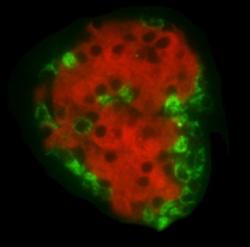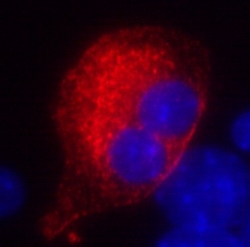Diabetes is a metabolic disease whose incidence has reached epidemic proportions worldwide. Diabetes results from inadequate production of insulin by the beta cells located in pancreatic islets: this leads to persistently elevated blood glucose levels, the hallmark symptom of diabetes. There is currently no cure for diabetes, and although treatments are available, these have many limitations.
The goal of our research is to understand how pancreatic beta cells perform their unique functions. Beta cells are the only cell in the body capable of significant production of insulin. They store insulin intracellularly, releasing it to the bloodstream in response to a variety of physiological stimuli including nutrients such as glucose and fatty acids, hormones and neurotransmitters.
In our research, we focus on the following aspects of beta cell function:
- The transcriptional mechanisms underlying the normal embryonic development of beta cells and the functioning of mature beta cells
- Manipulating pancreatic cellular identity: molecular mechanisms controlling exocrine to endocrine cell reprogramming
- Dissecting the signaling mechanism that permit beta cells to respond to modulators of insulin secretion, in particular long chain and short chain fatty acids





